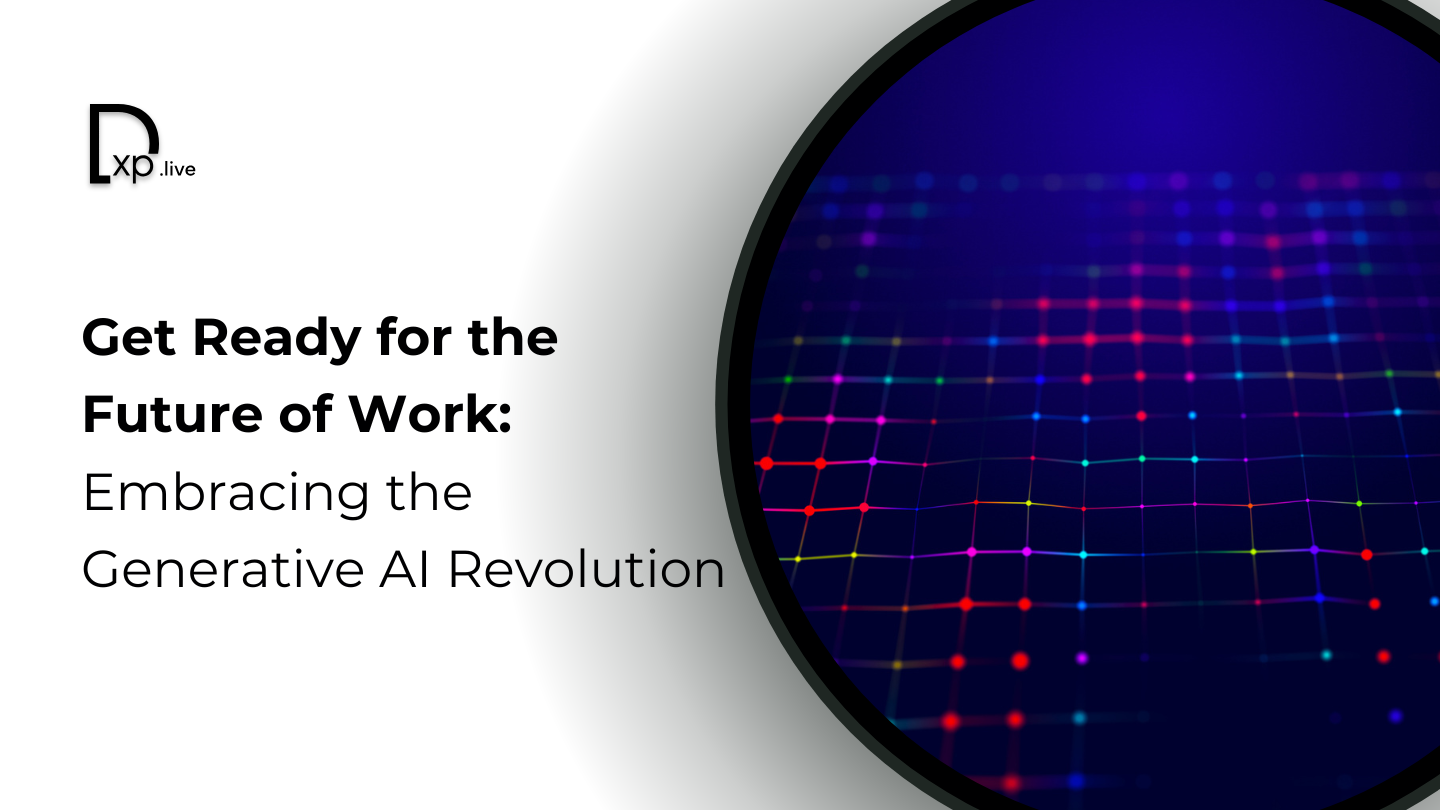Get Ready for the Future of Work: Embracing the Generative AI Revolution

The landscape of work is evolving at an unprecedented pace, and one of the most significant catalysts driving this change is generative AI. According to Precedence Research, the generative AI market is projected to soar to an astounding $803.90 billion by 2033, growing at a remarkable annual rate of 46.5%. This explosive growth signals a transformative shift in how businesses operate, communicate, and innovate.
As we stand on the brink of this generative AI revolution, it’s essential to understand the implications for the future of work. Companies must prepare to adapt to new technologies that will redefine job roles, enhance productivity, and foster collaboration. Here’s what to expect and how to prepare for the coming changes.
1. Redefining Job Roles
The integration of generative AI into the workplace will inevitably reshape job roles across various industries. Routine tasks that once consumed valuable employee time can now be automated, allowing workers to focus on higher-level strategic initiatives. For example, content generation, data analysis, and even coding can be expedited through AI tools, increasing efficiency and reducing errors.
However, this shift also raises concerns about job displacement. While generative AI will automate certain functions, it will create new roles that require a blend of technical skills and human creativity. Employees will need to adapt by reskilling and upskilling to remain competitive in the job market.
2. Enhancing Collaboration
Generative AI is poised to enhance collaboration within teams by streamlining communication and enabling more efficient project management. AI tools can analyze team interactions, identify collaboration bottlenecks, and suggest improvements to workflows. For instance, virtual assistants powered by generative AI can schedule meetings, summarize discussions, and provide actionable insights, allowing teams to work more cohesively.
Moreover, generative AI can facilitate cross-functional collaboration by breaking down silos within organizations. By providing shared insights and automating knowledge transfer, teams from different departments can work together more effectively, fostering innovation and driving business growth.
3. Fostering Creativity and Innovation
One of the most exciting prospects of generative AI is its potential to augment human creativity. By automating repetitive tasks, employees can devote more time to brainstorming, ideation, and creative problem-solving. Generative AI can also serve as a creative partner, offering suggestions and generating content that inspires new ideas.
For instance, marketing teams can leverage AI to create compelling ad copy or generate visual content, allowing them to explore new creative avenues. This collaborative approach can lead to groundbreaking innovations and a more dynamic work environment.
4. Navigating Ethical Considerations
As organizations embrace generative AI, ethical considerations will become paramount. Issues such as data privacy, bias in AI algorithms, and the potential for misinformation must be addressed to ensure responsible AI usage. Companies will need to establish ethical guidelines and transparency in their AI initiatives to build trust among employees and consumers alike.
Furthermore, organizations should prioritize diversity in AI development teams to mitigate biases and ensure that AI systems are fair and inclusive. By fostering a culture of ethical AI use, businesses can navigate the challenges associated with this rapidly evolving technology.
Conclusion: Preparing for the Future
The future of work is being shaped by generative AI, and companies must be proactive in preparing for these changes. Embracing this technology offers an incredible opportunity to enhance productivity, foster collaboration, and drive innovation. However, organizations must also consider the implications for their workforce, ensuring that employees are equipped with the skills needed to thrive in this new environment.
As we move towards this exciting future, the question isn’t whether to adopt generative AI but how to do so responsibly and effectively. By fostering a culture of continuous learning and ethical practices, businesses can harness the full potential of generative AI, positioning themselves for success in the years to come.
FAQs:
1. What is generative AI?
Generative AI refers to artificial intelligence systems that can generate new content, ideas, or solutions based on learned patterns from existing data.
2. How will generative AI impact job roles?
While generative AI will automate routine tasks, it will also create new roles requiring technical skills and human creativity, necessitating reskilling and upskilling.
3. Can generative AI enhance collaboration in teams?
Yes, generative AI can streamline communication, identify workflow bottlenecks, and provide actionable insights, fostering more efficient collaboration within teams.
4. What are the ethical considerations surrounding generative AI?
Key ethical considerations include data privacy, bias in AI algorithms, and the potential for misinformation. Companies must establish guidelines for responsible AI use.
5. How can organizations prepare for the future of work with generative AI?
Organizations should focus on reskilling employees, fostering a culture of continuous learning, and implementing ethical practices in AI development to succeed in the evolving landscape.




